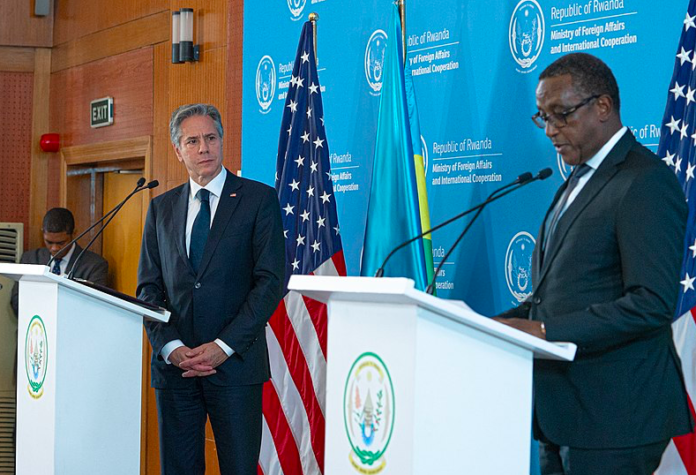
Kigali, Rwanda, 19 February 2024 – Rwanda has announced its intention to request clarification from the United States regarding statements made about the ongoing conflict in eastern Democratic Republic of Congo (DRC).
The Rwandan government expressed concerns through an official statement published on the Ministry of Foreign Affairs’ website. It highlighted discrepancies in the international response, particularly criticizing the perceived neglect of the Luanda and Nairobi agreements aimed at fostering peace in the DRC. These agreements, reached in Luanda, Angola, and Nairobi, Kenya, were designed to address the conflict and promote stability in the region.
Rwanda accuses the DRC government of escalating military operations in North Kivu Province, targeting M23 rebels and Congolese Tutsi civilians, thereby violating the peace agreements. The Rwandan statement points out the collaboration between the DRC and the Democratic Forces for the Liberation of Rwanda (FDLR).
The Rwandan government asserts that the DRC’s actions not only breach regional peace efforts but also endanger Rwandan national security by fostering an environment of hate speech, ethnic discrimination, and violence. It accuses the DRC of integrating FDLR elements into its armed forces.
Rwanda’s statement also references a recent U.S. Department of State announcement dated 17 February 2024, which Kigali claims misrepresents the situation and contradicts earlier diplomatic engagements. Rwanda seeks to understand whether this U.S. statement indicates a sudden shift in policy or a misalignment within its departments.
Furthermore, Rwanda recalls the US’s designation of FDLR as a terrorist organization following the murder of eight tourists, including two Americans, and questions the credibility of the US as a mediator in the Great Lakes region. This skepticism is fueled by the release and resettlement in Australia of former ALIR members, who were acquitted by a US court based on DNA evidence and allegations of torture by Rwandan intelligence services. The Bwindi massacre, attributed to Rwandan intelligence to internationalize the condemnation of ALIR, is cited as evidence of Rwanda’s manipulation of international perceptions.
This call for clarification from Rwanda comes amid accusations from the DRC and other international observers about Rwanda’s support for the M23 rebel group, a charge Rwanda denies, framing the conflict as an internal DRC issue that should be resolved domestically.






























































